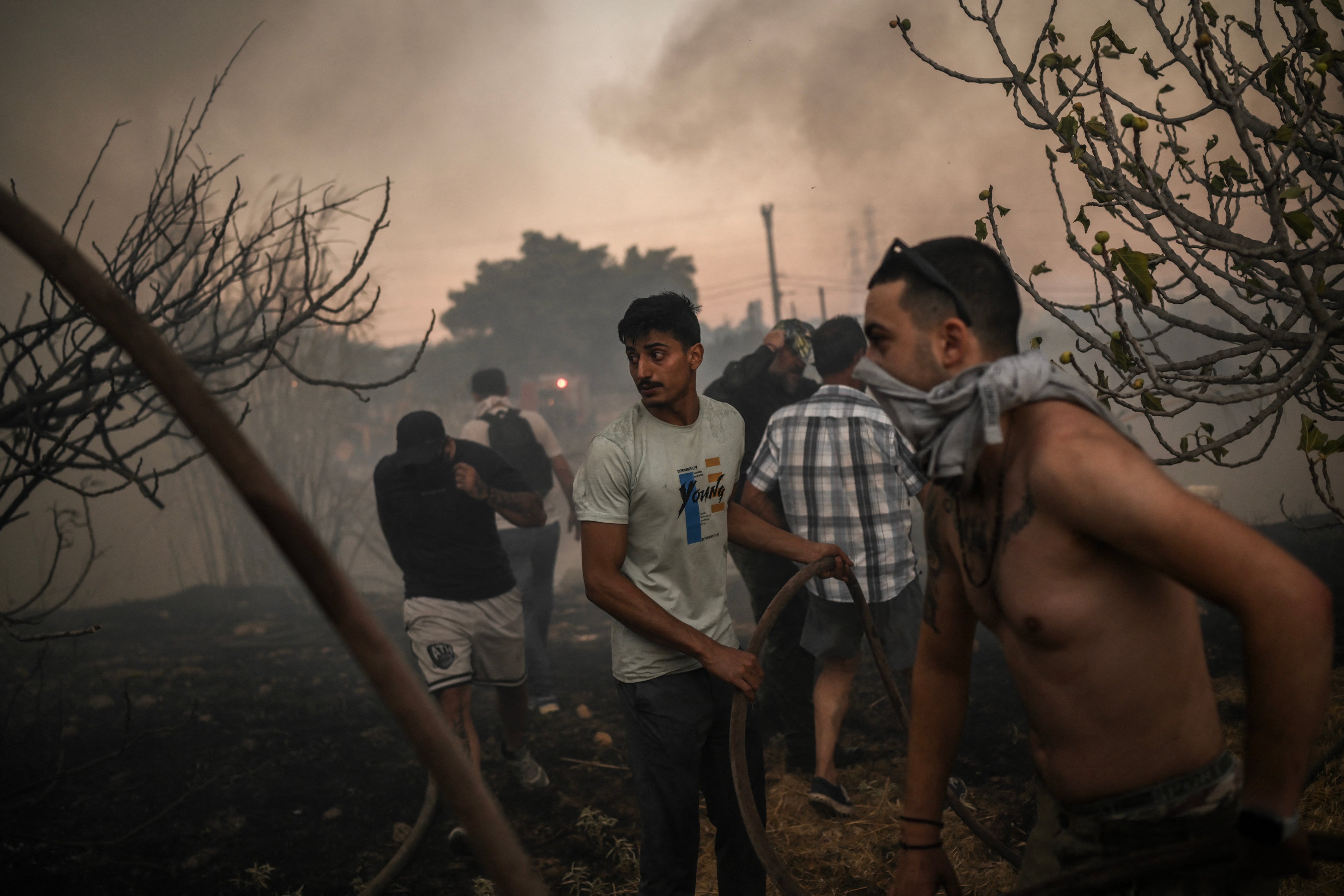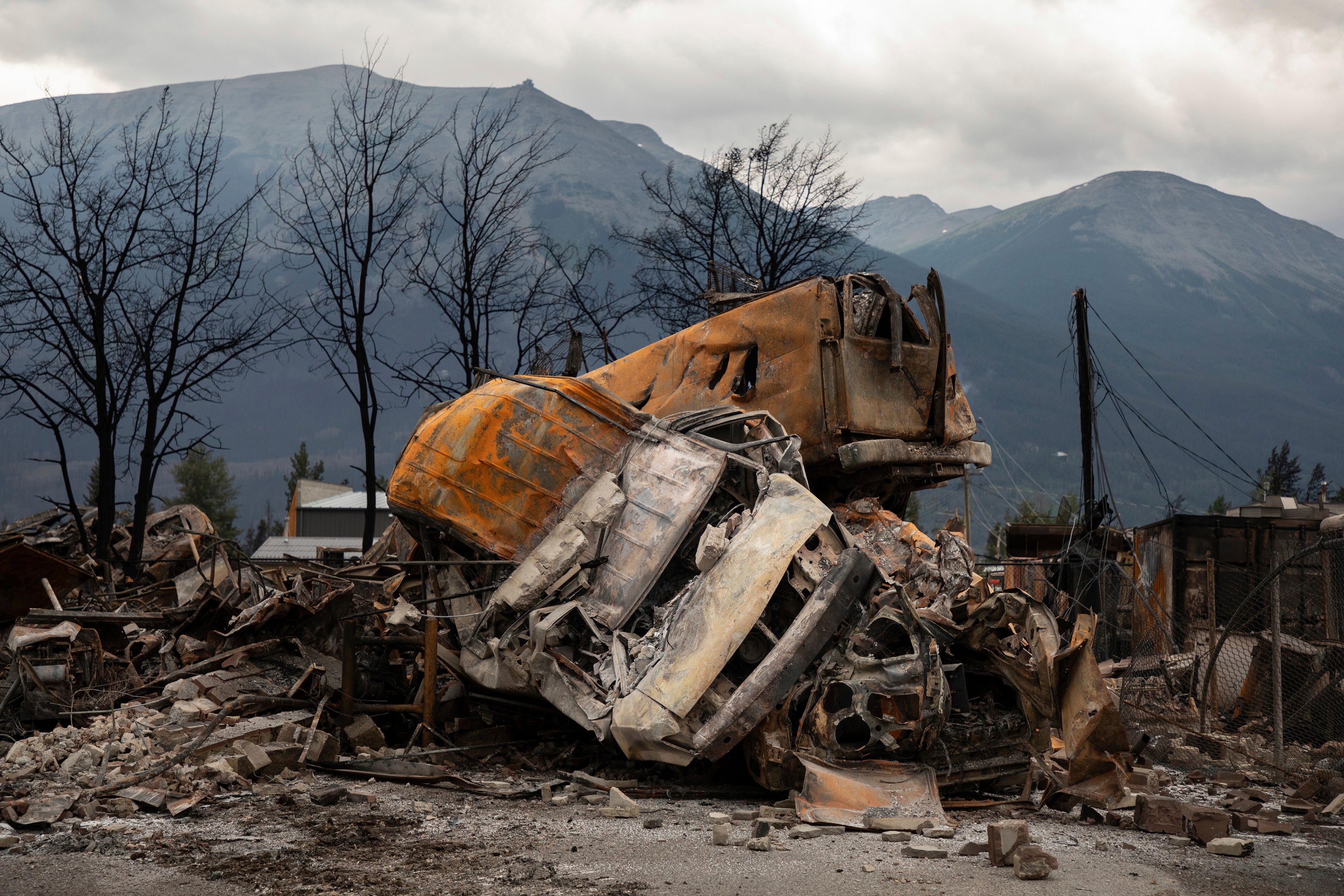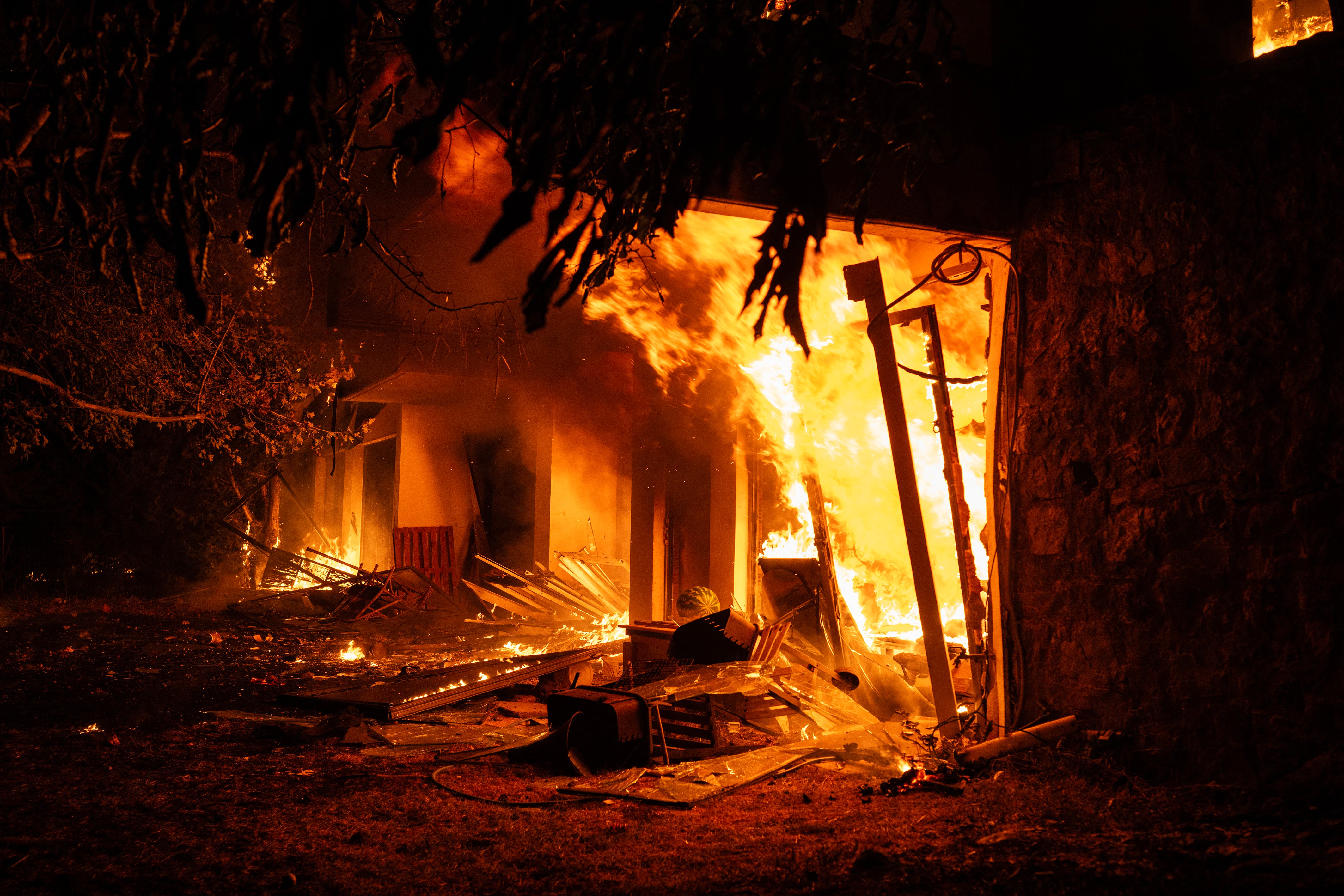Wildfires up to three times more likely due to climate change, new report claims
The first ‘state of wildfires’ report has been published on the day Greece suffered from fires near Athens

Your support helps us to tell the story
From reproductive rights to climate change to Big Tech, The Independent is on the ground when the story is developing. Whether it's investigating the financials of Elon Musk's pro-Trump PAC or producing our latest documentary, 'The A Word', which shines a light on the American women fighting for reproductive rights, we know how important it is to parse out the facts from the messaging.
At such a critical moment in US history, we need reporters on the ground. Your donation allows us to keep sending journalists to speak to both sides of the story.
The Independent is trusted by Americans across the entire political spectrum. And unlike many other quality news outlets, we choose not to lock Americans out of our reporting and analysis with paywalls. We believe quality journalism should be available to everyone, paid for by those who can afford it.
Your support makes all the difference.Unprecedented fires that raged in Canada and parts of the Amazon were at least three times more likely because of climate change, the first annual assessment of wildfires has shown.
The report also said that wildfires in Greece, which Athens is currently suffering from, are twice as likely.
The first “state of wildfires” report – which is set to be published annually – assesses extreme wildfires that took place between March 2023 to February 2024, their causes, whether they could be predicted and how the risk of similar events will increase with future climate change.

The report finds that carbon emissions from wildfires in 2023-2024 were 16% above average, with 8.2 billion tonnes of carbon dioxide put into the atmosphere, almost a quarter of that from fires in the Canadian boreal forests.
And the scientists behind the report said that if it had not been a quiet fire season in the African savannahs, with 13% less area burning than average, the global emission from wildfires would have been the greatest of any fire season on record since 2003.
Some 3.9 million square kilometres (1.5 million square miles) of land burned in wildfires during the global fire season from March 2023 to February 2024, slightly below the average for the last two decades.
But carbon emissions were up because the fires disproportionately affected dense forests, according to the report led by the University of East Anglia, the UK Centre for Ecology and Hydrology, the Met Office and European Centre for Medium-Range Weather Forecasts.
The report highlights the record-breaking fires in Canada, the largest recorded fires in the European Union which killed 19 people in Greece, and drought-driven fires in western Amazonia and northern parts of South America.
It also highlights deadly fires in Hawaii, where 100 people died, and Chile, in which 131 were killed.

The research said Canada’s record fires in its boreal forests – which saw a burned area six times the average and carbon emissions more than nine times the average – were made at least three times more likely because of climate change, which increases the risk of high “fire weather” – hot, dry conditions that promote fire.
Climate change made the high fire weather that drove the extreme fire season in western Amazonia more than 20 times more likely, the researchers said, and twice as likely in Greece.
The analysis also finds that fires in Canada and Amazonia were larger because of climate change.
Lead author Dr Matthew Jones, research fellow at the Tyndall Centre for Climate Change Research at UEA said: “Last year, we saw wildfires killing people, destroying properties and infrastructure, causing mass evacuations, threatening livelihoods and damaging vital ecosystems.
“Wildfires are becoming more frequent and intense as the climate warms, and both society and the environment are suffering from the consequences.”

The researchers warned that the loss of carbon stocks from forests in Canada and South America will have lasting impacts for Earth’s climate, as forests take decades or even centuries to recover from fire.
So the carbon released raises the atmospheric concentrations of the greenhouse gas in the atmosphere, in turn driving more climate change.
And the frequency and intensity of extreme wildfires will increase by the end of the century, particularly if greenhouse gas emissions remain high, but cutting the amount of climate pollution going into the atmosphere will reduce the rising risk, they said.
The report was published in the journal Earth System Science Data.



Join our commenting forum
Join thought-provoking conversations, follow other Independent readers and see their replies
Comments